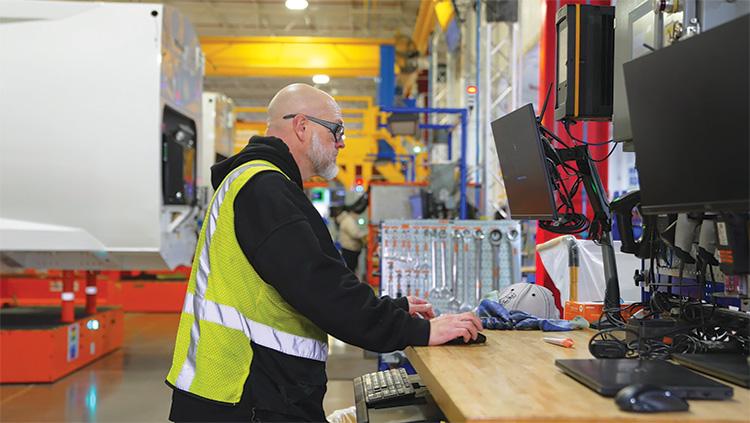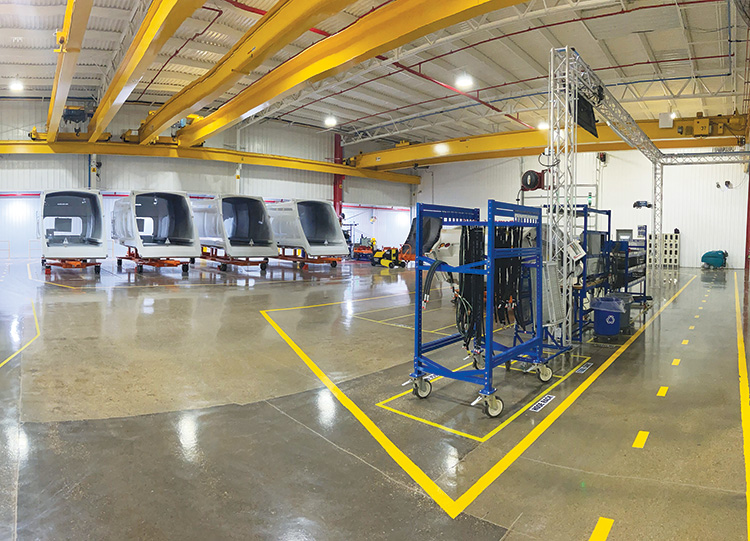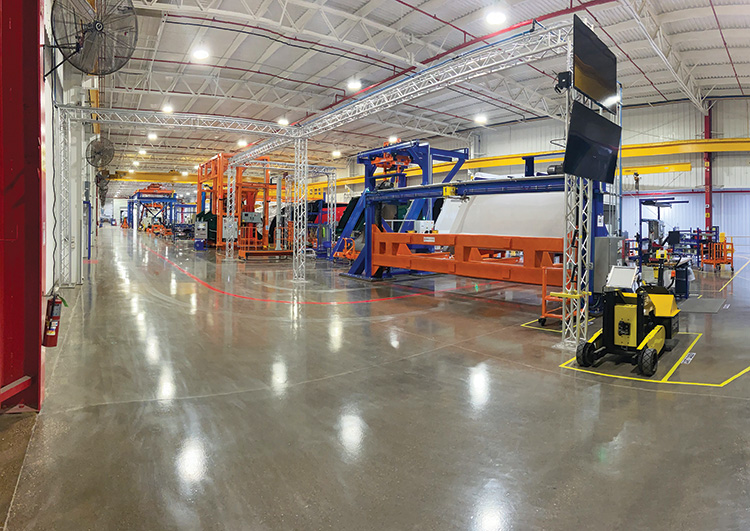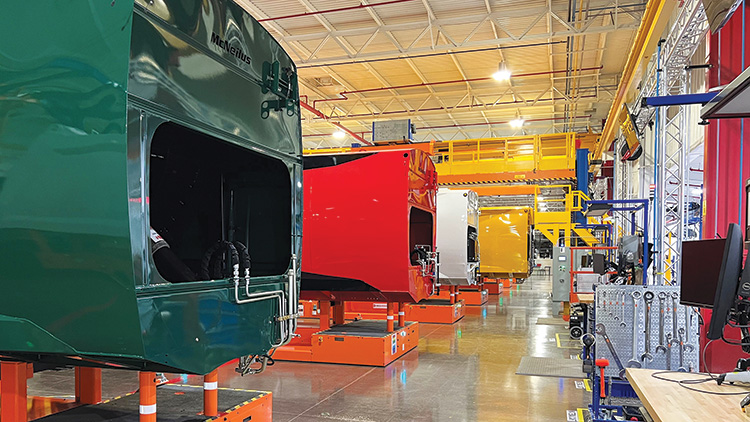As Industry 4.0 technologies continue to evolve, benefits will be realized around consistency, reliability, safety, and efficiency. Especially in the case of eRCVs, advanced manufacturing practices can help bring customers more access to the latest innovations and enhancements throughout the life of their vehicles.
By Kelli McConahey
Transformation across the waste industry is poised to accelerate in 2024 as adoption of Industry 4.0 practices and demand for electrification technology gains momentum. Industry 4.0 advanced manufacturing practices can help deliver significant value for haulers and fleet owners and it provides numerous benefits and advantages specifically in the design, development, and production of electric refuse collection vehicles (eRCV).
Industry 4.0 is the integration of intelligent digital technology, connectivity, and automation into manufacturing and industrial processes, including wireless technology, equipment, and components that enable smart, data-driven manufacturing. Industrial Internet of Things (IIoT), information technology, autonomous robotics, artificial intelligence (AI), cloud-based execution systems, and machine learning for analytics are among the key concepts and solutions that create an Industry 4.0 environment.
A wide range of digital tools are now available to implement advanced refuse collection vehicle manufacturing based on Industry 4.0. And it is not using technology for technology’s sake. Deploying advanced technologies enables manufacturers to pinpoint specific areas where efficiencies can be maximized and processes optimized—benefits that help manufacturers provide the best product experience, from order to delivery.
For example, augmented reality (AR) and virtual reality (VR) technologies can be used to provide manufacturability assessments of product designs and layout reviews. AR and VR can also create an identical virtual version of an asset—from a product to an entire factory—to help make decisions about product development, system maintenance, and more. In addition, workers can receive training through augmented reality simulations, helping to enhance skills and reducing the learning curve in a rapidly evolving environment.

Other examples include hardware and software for edge computing, which enables IIoT-connected devices to send data in real-time about process and equipment performance; a digital shop floor management system that delivers standard work orders to operators and provides a full 3D dynamic image of the finished product; and sensors embedded into equipment to provide early detection of potential breakdowns and ensure preventative maintenance is in place to avoid disruptions. As more Industry 4.0 technologies are implemented, manufacturers can deliver a high-quality product quickly, while using fewer resources.
Industry 4.0 and Vehicle Electrification: A Perfect Match
The high-tech nature of Industry 4.0 makes it an ideal environment for manufacturing electric refuse collection vehicles. The intelligent data provided by an advanced manufacturing environment can yield a wide range of advantages over a traditional manufacturing system, which is particularly important for the production of eRCVs. These advantages can include increased production capacity, enhanced product quality and customization, reduced costs, decreased defects per unit, and higher on-time delivery. All are key factors in meeting fleet owners’ expectations, especially with eRCVs. In addition, data shows that conventional manufacturing requires approximately three to four times more labor to build an eRCV compared to implementing industry 4.0 practices.


For employees in an Industry 4.0 manufacturing environment, the technological advancements create a safe and efficient workspace. For example, high-voltage operations necessary in building EVs would traditionally be performed by people and could now be performed by automated robots with extreme precision. The work can then be checked by software and systems collecting and analyzing data to ensure the work is performed to exact specifications.
Shifting repetitive, inefficient tasks from operators to automated solutions, means those tasks are performed safely and more effectively, and operators can focus on work that truly adds value to production processes. This contributes to the implementation of smart factories, where workers and robots co-exist and real-time data is used to streamline and optimize processes, resulting in profound improvements in manufacturing efficiency, productivity, and flexibility at scale.
Benefits to Fleet Owners
Industry 4.0 practices and advanced manufacturing technology are already reshaping the refuse collection landscape, from smart factories and automation to customization for specific use cases and sustainable production methods. The benefits of employing advanced manufacturing extends well beyond the factory floor. Industry 4.0 is not only changing refuse collection vehicle manufacturing, but also how operators and fleet owners experience these vehicles. One example is with integrated sensors that provide real-time data collection and analysis. These sensors monitor vehicle performance, identify issues, and help make preventative maintenance possible.

Photos courtesy of McNeilus.
This proactive maintenance approach helps to reduce vehicle downtime and ensure trucks are in optimal condition. It also contributes to lower total cost of ownership (TCO) through less material, less labor, fewer defects during the manufacturing process and more vehicle uptime. This becomes particularly important with eRCVs in terms of reliability and decreased maintenance costs.
As Industry 4.0 technologies continue to evolve, benefits will be realized around consistency, reliability, safety, and efficiency. Especially in the case of eRCVs, advanced manufacturing practices can help bring customers more access to the latest innovations and enhancements throughout the life of their vehicles. | WA
Kelli McConahey is Marketing Manager for McNeilus Truck and Manufacturing. She has been working in the waste industry for 10 years and leads all brand and marketing efforts for McNeilus, specifically with product launches and promotions related to refuse collection technology, including electrification and automation. Kelli can be reached at (507) 272-9080 or e-mail k[email protected].
